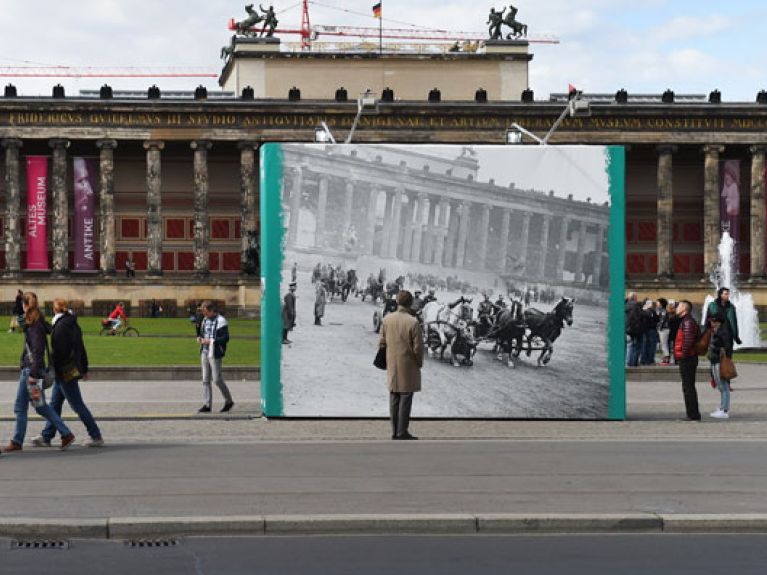70 years since the end of the war in Europe
The focus of the Year of Commemoration 2015 in Germany will be on remembering the end of the Second World War and the liberation from National Socialism.

It is impossible to draw a line under history, as the Year of Commemoration 2015 clearly illustrates. 8 May marks the 70th anniversary of the end of the Second World War in Europe. Even in the weeks leading up to this date, Germans have staged numerous events to commemorate the liberation of the Nazi concentration camps by the Allied forces. In Bergen-Belsen, Federal President Joachim Gauck recalled the “inconceivable abyss of barbarism” and the immense political, moral, cultural and humanitarian catastrophe brought about by the Nazi terror. The Allies liberated Germany and Europe, as the then Federal President Richard von Weizsäcker stated in his historic speech 30 years ago. In doing so, he urged Germans to adopt a new approach to the past, one involving active remembrance.
On 8 May, the German Bundestag and Bundesrat will jointly stage a ceremony to mark the end of the Second World War in Europe. The historian Heinrich August Winkler will give the commemorative address, which will be broadcast live on the Internet at www.bundestag.de. Two days later, Federal Chancellor Angela Merkel will travel to Moscow where, together with Russian President Putin, she will lay a wreath at the Tomb of the Unknown Soldier by the Kremlin wall.
Responsibility for the present
Exhibitions such as “1945 – Defeat. Liberation. New Beginning“ at the Deutsches Historisches Museum in Berlin create a link between the past and the present. Furthermore, commemorative sites and places of learning like the new Munich Documentation Centre for the History of National Socialism are aimed at young people. As Foreign Minister Frank-Walter Steinmeier emphasized during a commemorative ceremony at the House of Representatives in Berlin: “So our liberation gave rise to our responsibility - the responsibility of ‘Never again’!”. The most terrible years in German history and the liberation from National Socialism are by no means a closed chapter, as a secondary school student of Kurdish origin made abundantly clear in a school project about the end of the war when he said: “The eighth of May 1945 is part of my German identity, an identity that is shaped by education and democracy.”
www.bundesregierung.de/Webs/Breg/DE/Themen/Gedenken/Veranstaltungen/_node.html
www.dhm.de/ausstellungen/1945.html
©www.deutschland.de
